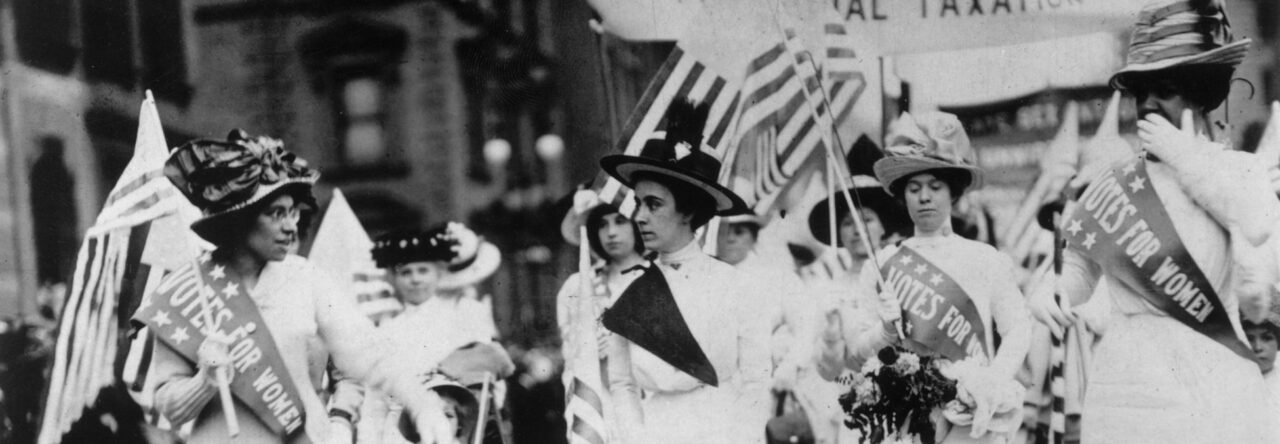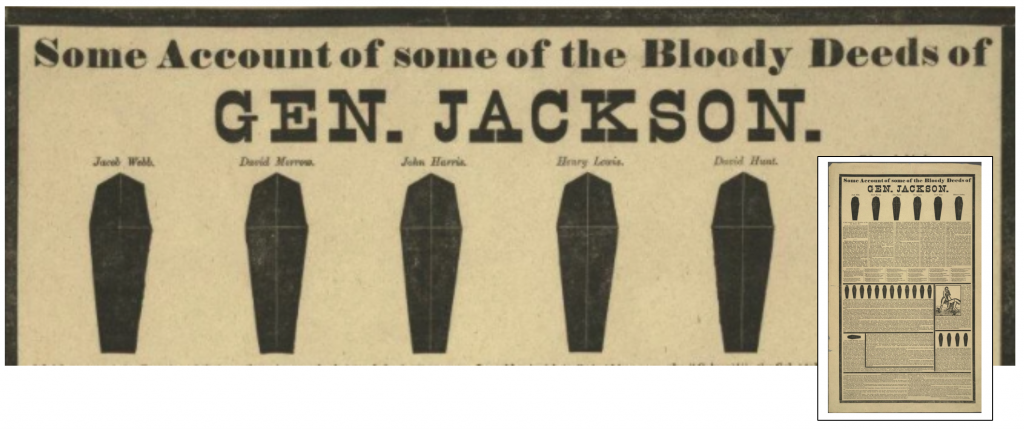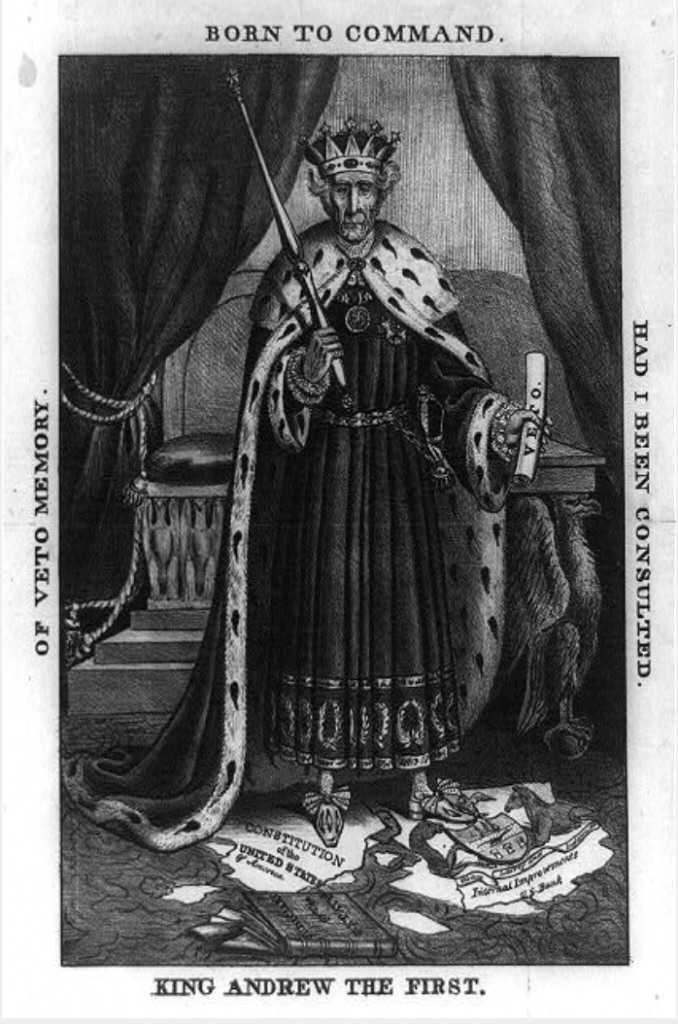1828 // ANDREW JACKSON AND THE COFFIN HANDBILL
Recollection from Philadelphia editor on Election of 1828
In order to arrest public attention and impress the public mind with the injustice and the enormity of the crime of General Jackson, in respect to the shooting of these militia men [during the War of 1812], I had six coffins cast in type metal, and on each of them the name of one of the men who had been shot. I had supplements to the ‘Democratic Press’ printed, with the coffins on them, together with the history of the whole transaction, and had one of those supplements sent with every copy of the daily, tri-weekly, and weekly ‘Democratic Press.’ Thus several thousand coffin handbills were circulated across the United States. It may well be doubted whether there was ever a publication which brought upon the publisher such active, general, and intense odium as those coffin handbills brought upon the writer of these recollections.
1832 // KING ANDREW AND THE BANK VETO
Excerpt from Jackson 1832 veto message
Experience should teach us wisdom. Most of the difficulties our Government now encounters and most of the dangers which impend over our Union have sprung from an abandonment of the legitimate objects of Government by our national legislation, and the adoption of such principles as are embodied in this act. Many of our rich men have not been content with equal protection and equal benefits, but have besought us to make them richer by act of Congress. By attempting to gratify their desires we have in the results of our legislation arrayed section against section, interest against interest, and man against man, in a fearful commotion which threatens to shake the foundations of our Union. It is time to pause in our career to review our principles, and if possible revive that devoted patriotism and spirit of compromise which distinguished the sages of the Revolution and the fathers of our Union. If we can not at once, in justice to interests vested under improvident legislation, make our Government what it ought to be, we can at least take a stand against all new grants of monopolies and exclusive privileges, against any prostitution of our Government to the advancement of the few at the expense of the many, and in favor of compromise and gradual reform in our code of laws and system of political economy.
—Andrew Jackson’s 1832 Bank veto message (Miller Center transcript)
1840 // TIPPECANOE AND WHIG RALLIES, TOO
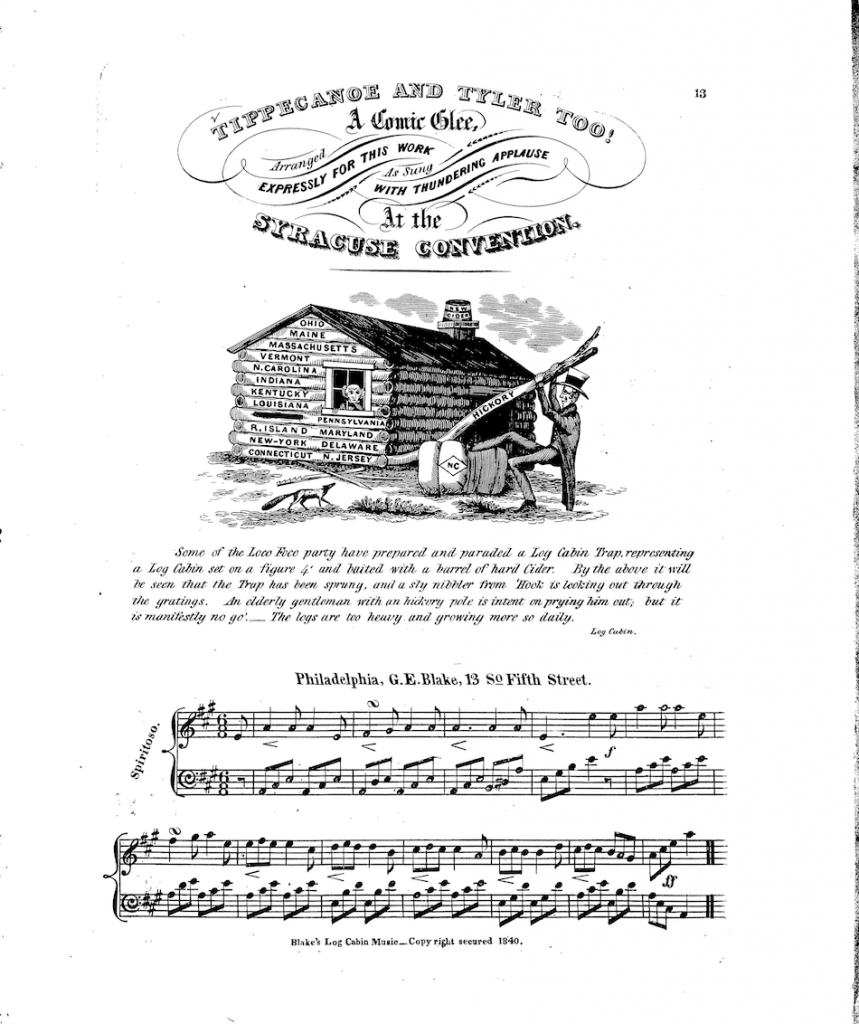
1840 Whig campaign song sheet (Library of Congress)
Mary Todd comments following 1840 election
I suppose like the rest of Whigs though you see rather to doubt my faith you have been rejoicing in the recent election of Gen Harrison, a cause that has excited such deep interest in the nation and one of such vital importance to our prosperity. This fall I became quite a politician, rather an unladylike profession, yet at such a crisis, whose heart could remain untouched while the energies of all were called in question?
–Mary Todd to Mercy Levering, December 1840
1844 // POLK, CLAY AND NEW YORK ABOLITIONISTS
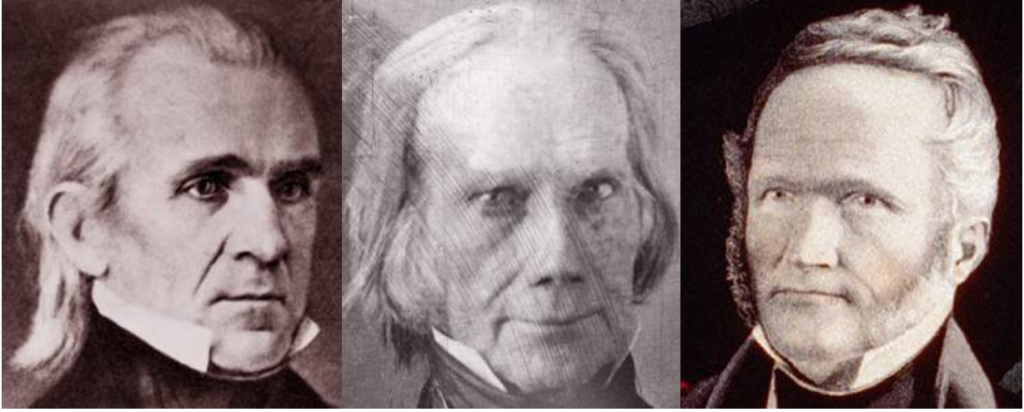
Presidential candidates in 1844 (L to R): James Polk (Dem) = 49.5% (170 EV), Henry Clay (Whig) = 48% (105 EV), and James Birney (Liberty) = 2% (0 EV). There was another potential third-party candidate in that contest, but he was killed in the summer of 1844. Can you name him?
Lincoln analysis following Clay’s defeat in 1844
If the whig abolitionists of New York had voted with us last fall, Mr. Clay would now be president, whig principles in the ascendent, and Texas not annexed; whereas by the division, all that either had at stake in the contest, was lost. And, indeed, it was extremely probable, beforehand, that such would be the result. As I always understood, the Liberty-men deprecated the annexation of Texas extremely; and, this being so, why they should refuse to so cast their votes as to prevent it, even to me, seemed wonderful. What was their process of reasoning, I can only judge from what a single one of them told me. It was this: “We are not to do evil that good may come.” This general, proposition is doubtless correct; but did it apply? If by your votes you could have prevented the extention, &c. of slavery, would it not have been good and not evil so to have used your votes, even though it involved the casting of them for a slaveholder?
—Lincoln to Williamson Durley, October 3, 1845 (Lincoln’s Writings)
- In 1844, New York controlled 36 electoral votes, the most in the union. Polk won 170 votes out of 275 total (138 to win).
1848 // GEN. TAYLOR AND WHIG FUSIONISM
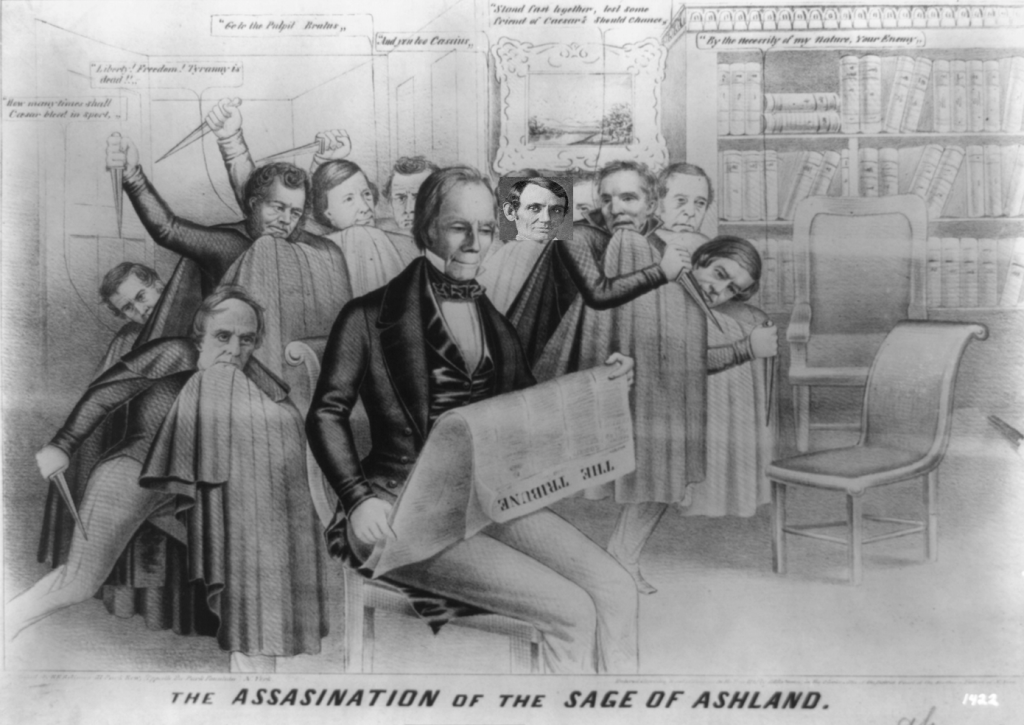
A slightly altered version of “The Assassination of the Sage of Ashland” political cartoon depicting the 1848 Whig abandonment of Henry Clay by H.R. Robinson. Can you identify the alteration?
Lincoln letter following 1848 convention
On my return from Philadelphia, where I had been attending the nomination of ‘Old Rough’ —I found your letter in a mass of others, which had accumulated in my absence. By many, and often, it had been said they would not abide the nomination of Taylor; but since the deed has been done, they are fast falling in, and in my opinion we shall have a most overwhelming, glorious, triumph. One unmistakable sign is, that all the odds and ends are with us—Barnburners, Native Americans, Tyler men, disappointed office seeking locofocos, and the Lord knows what. This is important, if in nothing else, in showing which way the wind blows.
—Lincoln to William Herndon, June 12, 1848 (Lincoln’s Writings)
